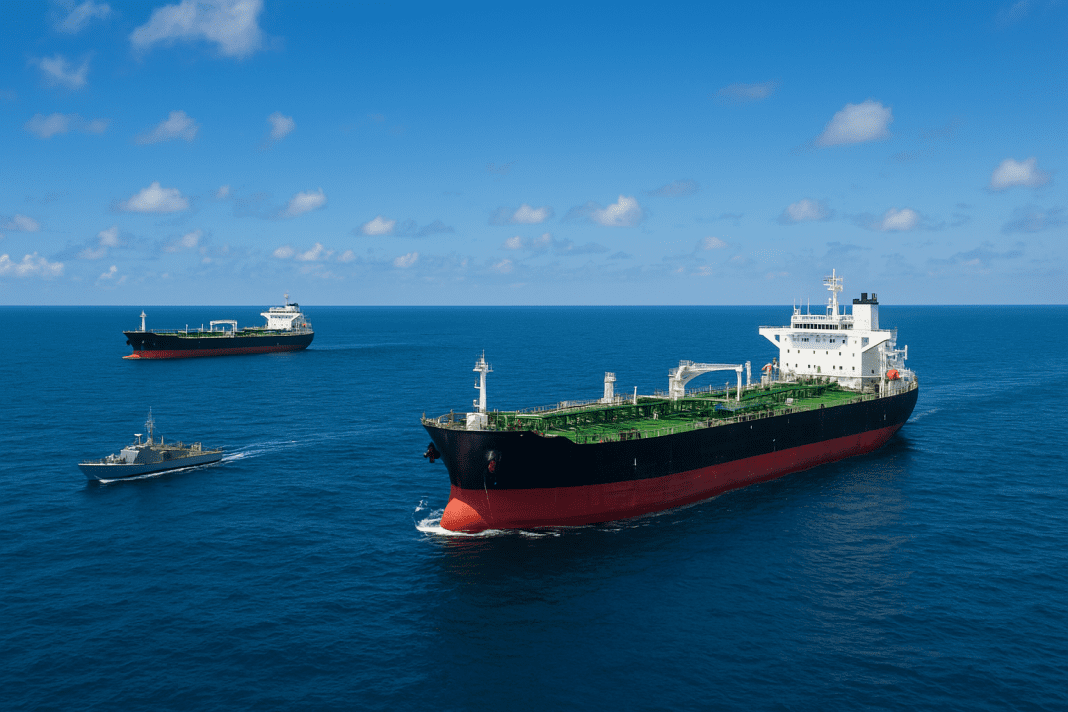Yemen’s Houthi group has announced sanctions on major US oil companies. The list includes ExxonMobil and Chevron, along with several other firms, senior executives, and two vessels. The move was announced by a Sanaa-based coordination body that works with Houthi forces and shipping operators.
Sanctions Declared Against US Oil Companies
According to the statement, the Houthis placed a total of 13 US oil companies and nine executives under sanctions. They also named two vessels linked to these firms in the announcement. The group presented the action as a response to measures that the United States imposed earlier this year, when it introduced its own set of sanctions on the Houthis.
The group claimed that these sanctions were necessary to retaliate against what they described as unfair restrictions. Despite an earlier truce agreement, tensions have remained high, especially around maritime routes near Yemen.
Houthis highlight growing military capabilities with hypersonic and drone strike
Rising Tensions in Key Shipping Lanes
The sanctions announcement comes at a time when Red Sea and Gulf of Aden shipping routes have been under threat from Houthi attacks. Since 2023, the Houthis have carried out multiple strikes against vessels they identified as linked to Israel. They said that they launched these actions to show support for Palestinians in the ongoing conflict in Gaza.
Although most oil tankers traveling through the Strait of Hormuz continue to operate without direct impact, the Houthis have occasionally struck ships in nearby waters. The Strait of Hormuz is one of the world’s most important oil transit routes, connecting the Persian Gulf with the Gulf of Oman and the Arabian Sea. Despite the risks, energy experts note that oil shipments through this narrow channel have continued largely without major disruption.
Treasury Targets 3 Ships Funding Iran-Backed Houthis in Red Sea
The Gulf of Aden, however, has seen several attacks. This waterway connects the Red Sea with the Arabian Sea and is another critical route for international shipping. Just this week, a Dutch cargo ship was hit by a cruise missile in the Gulf of Aden. The strike caused injuries to crew members and left the ship burning and drifting at sea.
These attacks highlight the dangers faced by commercial vessels in the region. Many shipping companies have already rerouted or adjusted their routes to avoid areas of high risk.
Impact on US Oil Companies and Global Trade
Despite the sharp announcement of sanctions, industry experts believe the move will not cause major disruption to the global oil trade. One key reason is that companies from China, Russia, Iran, and other Gulf nations dominate much of the energy trade in the Gulf region. The Houthis want to maintain positive relations with these countries, so they are less likely to target their shipping operations.
For the United States, the reliance on Gulf oil has been steadily shrinking. According to official energy data, the US imported about 500,000 barrels per day of crude oil and condensate through the Strait of Hormuz in 2024. That figure represents only about 7% of total US crude and condensate imports. It also marks the lowest level in nearly four decades, mainly due to rising domestic oil production and stronger imports from Canada.
Yemen’s Houthis announce Palestine-2 missile fired at Tel Aviv in unprecedented escalation
Many have described the announcement targeting US oil companies as a symbolic gesture. Observers believe the sanctions will not stop shipments or reduce oil flows, but they argue that the move serves as a political statement in response to US restrictions.
In their statement, the Houthis emphasized that they did not design the sanctions as punishment but framed them as a way to push for what they called “positive behavioral change.” By doing so, they aimed to show resistance and reassure their own supporters, especially as growing US sanctions and Israeli strikes continue to hurt their economy.
The situation highlights how US oil companies play a sensitive role in international trade and geopolitics. Even when the United States relies less directly on these supplies, the Houthis’ decision to name these corporations signals the broader reach of regional tensions and their impact on global energy routes.

